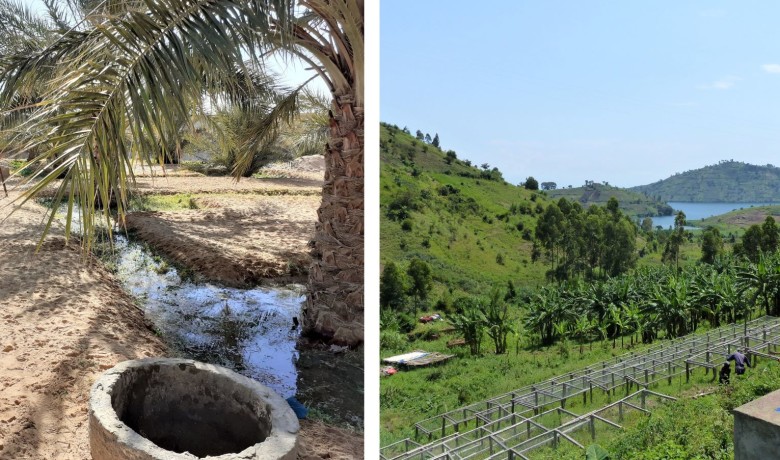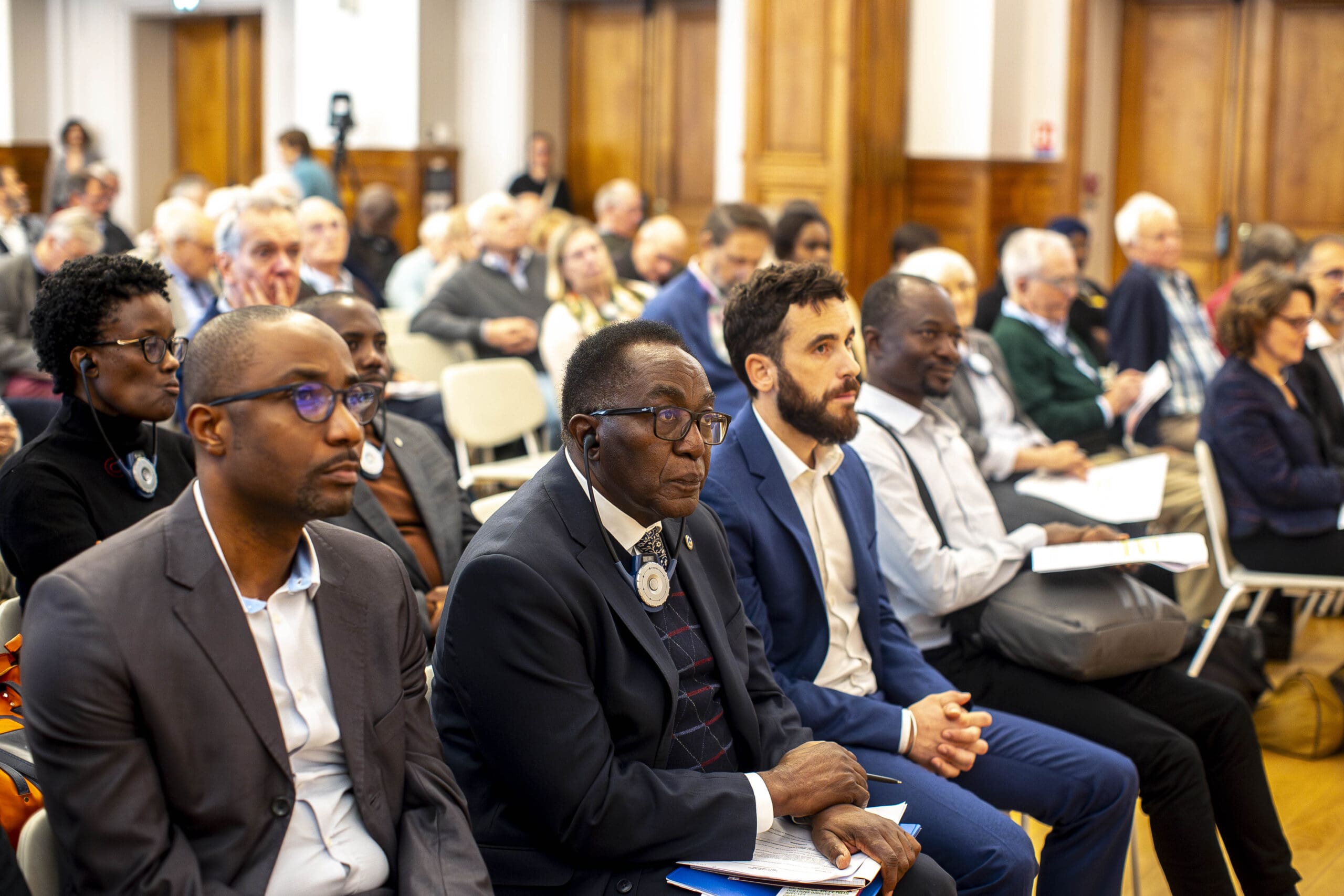
Beni Ghreb is a small company that markets dates produced in the Hazoua oasis in southern Tunisia, on the border with Algeria. It was set up in 2002 in response to the desire of a group of farmers to facilitate the marketing of their produce and increase their income. Beni Ghreb buys all its date production from the Groupement pour le Développement de l’Agriculture en Biodynamie, which groups together 130 families in the oasis. These dates, produced biodynamically (DEMETER certification), are marketed in Europe. The quality of the Deglet nour variety is excellent.
The company provides growers with a technical team that monitors the palms from flowering onwards, and takes care of harvesting. The dates are then sorted, washed and packed in the factory, before being exported to Europe.
Beni Ghreb, a company with a strong social and environmental mission to benefit the inhabitants of the Hazoua oasis. In fact, biodynamic certification enables producers to benefit from a purchase price for their dates that is up to 40% higher than on the conventional market. The company is also one of the main sources of employment for women in the town, mainly the wives and daughters of Groupement farmers. Beni Ghreb’s environmental impact is also very significant. In particular, it has set up a program to regenerate the oasis’ traditional ecosystem based on agroforestry, and has developed sprinkler irrigation systems that save 70% of water consumption.
SIDI entered into a partnership with Beni Ghreb in 2017 to finance date campaigns through annual loans. The partnership will take on a new dimension with the acquisition of a stake in the summer of 2022, enabling BGH to continue strengthening its technical and financial position in the years to come, and thus offer the best possible service to its growers.
In the Democratic Republic of Congo, Muungano is an organic and fair trade coffee cooperative located on the steep shores of Lake Kivu between 1400 and 2600 m altitude. It brings together more than 4,100 members, small-scale family coffee growers, 43% of whom are women.
The cooperative collects and processes the coffee produced in this disadvantaged region of South Kivu, which is highly vulnerable to climate change. Muungano, which means “living together” in Swahili, was created in 2009 as part of a reconciliation initiative to bring together ethnic groups divided by successive conflicts in the region through coffee production. SIDI became a partner of the cooperative in 2015 to finance its agricultural campaign and salutes the extraordinary work accomplished by this cooperative specializing in high-quality gourmet Arabica coffee.
Muungano is a model cooperative in terms of its democratic governance, its social and environmental performance and its economic impact, all in an unstable, fragile and impoverished East Congolese (Kivu) context in terms of living standards and the development of infrastructure and services.
The cooperative employs 25 permanent staff and up to 550 people in high season. In addition to organic certification, Muungano encourages the use of more resilient and soil-regenerating farming practices through training workshops in agoecology, agroforestry and the promotion of mixed cropping-livestock farming. Fair trade premiums are used not only for productive investment, but also to finance community projects. Muungano’s two major achievements are the construction of a small hydroelectric power station that now supplies the entire village of Kiniezire, where the cooperative’s head office is located, and a health center that is currently being finalized and is open to all. Muungano also offers growers a 2nd coffee payment at the end of the campaign. The cooperative also pays a premium to women producers, mostly used to provide them with goats.
Despite the major challenges facing the cooperative, it has been able to resist, progress and supply a highly sought-after gourmet coffee, sold at a better price, which increases the income of the growers and their families. Muungano illustrates the powerful social and environmental impact that an agricultural cooperative can have for its members and for the development of the area in which it operates.
We look forward to seeing you on November 8 in Lille to discover the winners of the Grands Prix de la Finance Solidaire and, in particular, the International Prize.
Further information: Beni Ghreb Muungano agricultural cooperative



